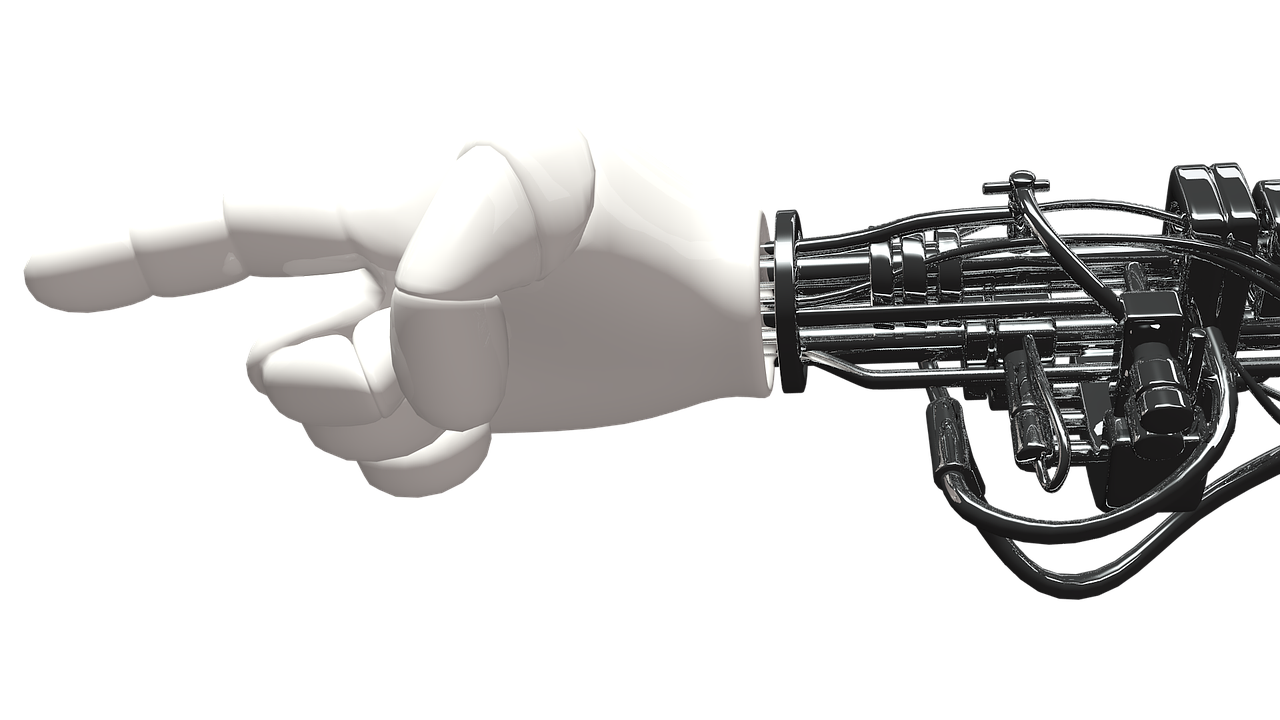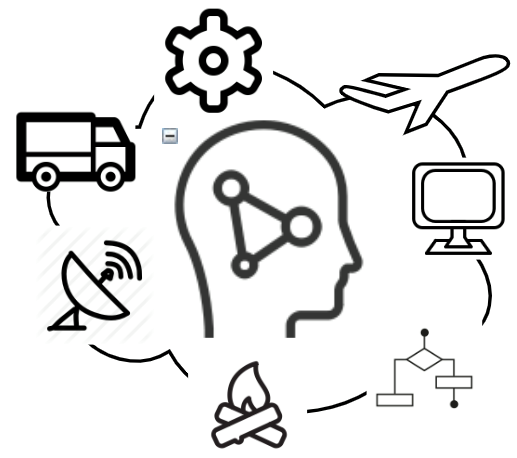
Will a robot take your job?
Recently I came across a few sources discussing the topic of replacing humans with robots in the work space: some personal opinions on Facebook, some posts in LinkedIn, some news from the tech world and finally my personal discussions with my friends and colleagues. Seems my mind finally processed all the input and produced the output which I’m ready to share in a format of ‘practical tech’ advice.
What are robots?
Here is the link to one of those posts which made me think:
Probably the most important point here, despite being quite obvious, is the fact that most robots are not physical devices running on spinning wheels, they are computer programs. So the robot invasion into the office workspace started as soon as the first computers were introduced. Until now though, it was mainly called automation. And until very recently, it was mostly perceived as complementary tools to improve human productivity while humans still played a key role in overseeing and coordinating the automated parts of the business processes.
What has changed?
With the advance of data processing technologies in general and AI/ML in particular, computer programs became self-sufficient enough to replace humans in overseeing and coordinating and hence completely remove the need of humans in a fully automated business process. And it is not just that computer programs became self-sufficient, they became much more efficient than humans.
Why isn’t it happening everywhere (just yet)?
Here is my take: most ERP or business automation software currently used by business was written 10 to 20 years ago and it will take time to change it. Today’s technology is fully capable of replacing humans in many (if not most) current day-to-day jobs, it is only a question of investment into technology implementation and overcoming human bias.
For the first issue (investment into technology implementation), a change will be forced by market competition – think how Amazon conquered the retail business. Here is a brief overview of their technology explaining (at least to some extent) their success:
https://pages.awscloud.com/jenny-freshwater-forecast-capacity.html
Another example is how other big techs are threatening the insurance business:
https://www.cbinsights.com/research/big-tech-insurance/ .
In order to survive, other companies will have to change their current business processes and workflows and implement more efficient technologies. Further transition to SaaS and XaaS (everything as a service) will make it easier by outsourcing each of the business routines to a specialized service provider enabling more efficient, i.e. technology-driven, service providers to win the market.
Regarding the second issue, overcoming human bias, this is already greatly shaken by the COVID-19 pandemic and enforced digitalization. Every parent is now OK to put his or her kid in front of a screen instead of sending them to school. The next step – replacing a human teacher by a digital ‘twin’ will be an easier transition. And every new generation will be more and more ‘digitized’, so navigating a digital world and communicating with ‘robots’ – both in a work environment and in private life will become quite natural.
Of course hundreds of years of human evolution as a ‘social being’ will not let it go so easily presenting some of us an opportunity to find a place in the new technology-driven world, more on it below.
Anyway, it brings us to the uncomfortable, but seems inevitable conclusion: that which can be automated will be automated eventually
Is there hope for humans?
Perhaps the future is not that bad and here is why. Let’s consider the following idea: in the capitalism world, implementing technological innovation at a large scale must be driven by some business objective, meaning generating more profit. Generating profit implies a healthy consumer base capable of buying products or services. Hence, at the global scale, we can hope (at least), that a particular technological innovation which may negatively impact the overall global consumer ability to buy products or services will not (may not?!) be implemented. Meaning, if humans will start losing their jobs on a global scale and lose their ability to buy products and services, it will naturally limit the ability of the business to invest into technological innovations replacing humans at work.
Honestly, I’m not sure if this is a valid consideration. After all we don’t know what we don’t know. Moreover, even if it is valid on a global scale, still the situation may turn out to be pretty severe for some individuals or even entire regions or nations.
What can we do?
Here we come to the ‘practical’ part of this post. Despite the modern world changing faster than ever, there is still time to re-think your job. The following ideas are not mine, but a collection from various sources (if you feel like I took your original idea – please get in touch, I will put a reference to your original post). So these options are:
1) Stay where you are, but re-think your day-to-day duties and the value you bring to your company. If you just follow some ‘standard’ routines and processes without a need to actively think out of the box or solve new problems, your job will surely be automated eventually. Unless there is a significant ‘human’ aspect in what you do – like your customers need deeply human communication – elderly patients, etc. Do not underestimate the power of technology. My bet is that soon technology will be even able to replace psychoanalysis.
2) Become an expert in your domain. Your expertise will be a valuable asset for training AI/ML or to implement other technology-based automation. Instead of dealing directly with people – customers, patients etc., you may be a part of a team building AI model or process. In some ways it may be even more exciting and fulfilling, as you can leverage your knowledge at a much larger scale and make an impact on millions instead of hundreds. IT skills are not strictly required but may come very handy. On the flip side though there is a risk that the famous rule ‘the 5% top percent gets 95% of the market’ from creative professions (writers, artists, musicians, etc.) may spread across to other professions in which the reward was traditionally distributed in a more even way. Think of the automated medical diagnosis AI system implemented by, let’s say Medoogle, which hired the 5% best doctors in the world and replaced 95% of the rest in the area of diagnosis and physical therapy by their AI system.
3) Work on the edge between robots and humans. Somewhat related to the previous point but more involved in the world of robots. Maybe helping to implement automated solutions, maybe helping to train and/or operate robots, maybe analyzing processes and inventing new ways for optimization.
4) Work in IT. Again, it’s not about IT as much as about your specific skills and what value you can bring. Definitely data scientists who will build and train ML models will be in demand… until the point when they create an AI which will be able to create new ML models autonomously. Programmers will be in demand until they code an AI which will be able to code by itself. But we probably shall not worry about that at the moment. IT skills are in hot demand. Amazon is offering IT training program to its employees:
https://www.aboutamazon.com/news/workplace/amazon-helps-employees-become-software-engineers-in-9-months
Some interesting observations from the presented data.
- Significantly shortened time period – 9 months to become a software engineer compared to traditional 4-5 years college degree.
- A huge demand for the new skills from the business:
“Amazon’s $700 million commitment to equip more than 100,000 Amazon employees with new professional skills by 2025”
- And a very low response from the employees… just hundreds since 2017 ?! :
“Hundreds of Amazon employees have enrolled in Amazon Technical Academy since its launch in 2017.”
Considering Amazon’s scale, this may be very indicative of the ‘human nature’ and inherent ‘resistance’ to change. Yet even better to those who can build a habit of learning and mastering new skills.
Another example is a large IT consulting company EPAM with its program ‘EPAM Anywhere’ allowing to work remotely from literally anywhere:
https://anywhere.epam.com/
and its complimentary program EPAM University:
https://www.training.epam.com/
There are plenty of opportunities. It is really up to you if a robot will take your job.
Will you stand still and let it take it?
Acknowledgments
A big “thank you” goes out to Patricio “Pato” Moschcovich, who did the proofreading for this post and provided invaluable feedback!
